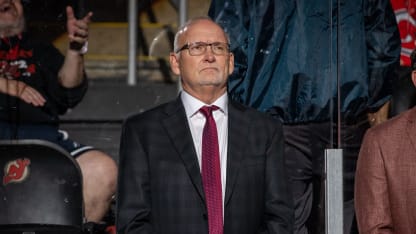Devils general manager Tom Fitzgerald has made a lot of moves since taking charge of the team. Whether it was signing his core players (Nico Hischier, Jack Hughes, Jesper Bratt, Timo Meier) to long-term contracts. Or landing Dougie Hamilton in free agency. Or acquiring Meier, John Marino and Vitek Vanecek through trade.
But, according to Fitzgerald himself, perhaps his best decision was his choice for head coach.
Lindy Ruff, 63, took over the reins on the Devils bench in 2020. The roster of players sitting in front of him was the youngest in the NHL, stocked with a young core of players in Hischier, Bratt and Hughes.
In Ruff’s first year, the Devils went 19-30-7, the third-worst record in the NHL. In Ruff’s third year, the Devils went 52-21-9, the third-best record in the NHL and a Second Round appearance in the Stanley Cup playoffs. The 52 wins and 112 points are both franchise records, and Ruff was nominated for the Jack Adams Award, given to the NHL’s best coach.
Ruff’s efforts were rewarded Wednesday morning with the signing of a multi-year contract extension with the club.
“I’m humbled by the opportunity. I’m excited by where the group’s at and where we can go,” Ruff said. “I really like where the team is at and I just want to continue.”



















